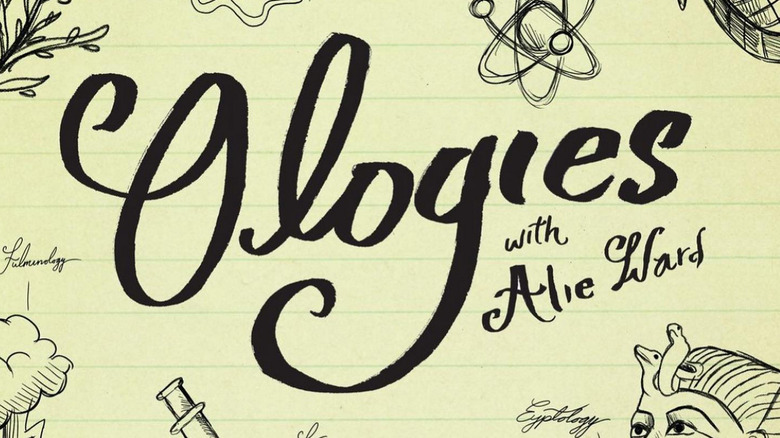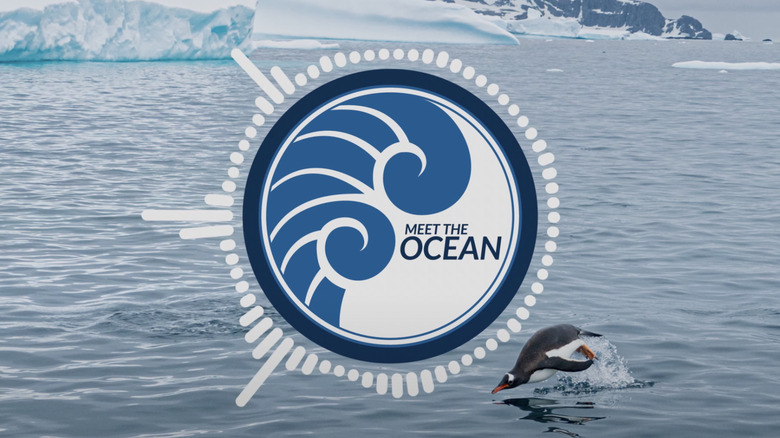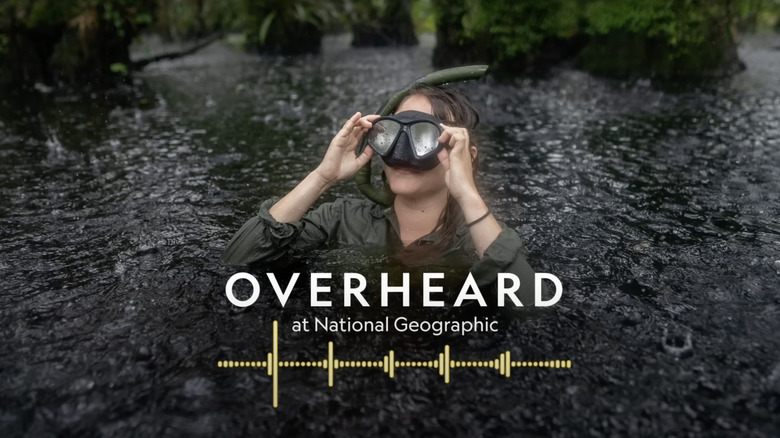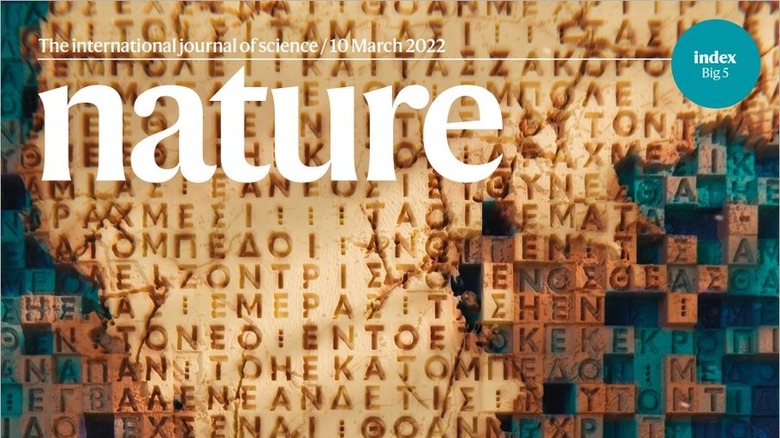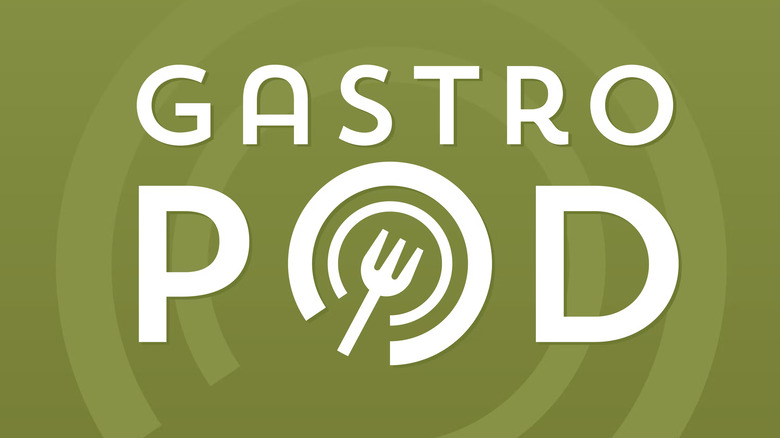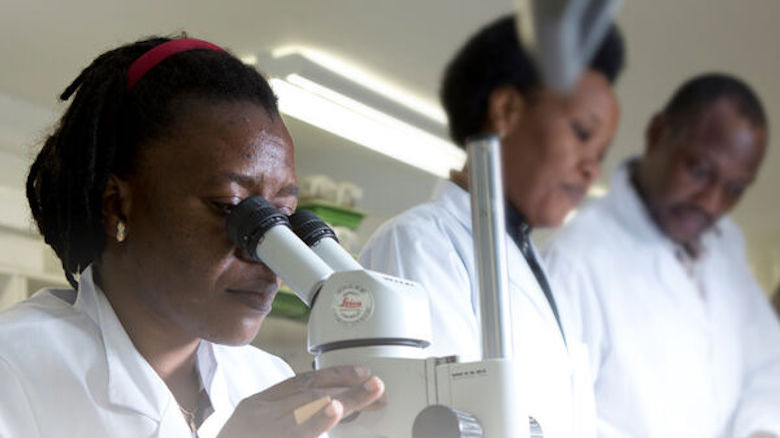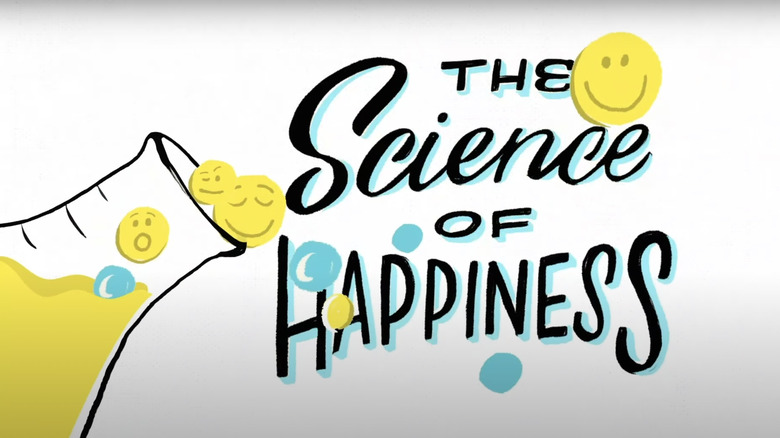The Best Science Podcasts Of 2022
The old stereotypes of scientists are steadily disappearing, and part of this can be credited to the popularity of science communicators. In the 21st century, it's easy to find scientists on social media, where there's a thriving #SciComm community. As the American Society for Cell Biology notes, social media is just one place where this kind of science communication is helping more and more people to understand and support scientific research.
Trust in science is currently more important than ever, with misinformation being startlingly easy to encounter in the digital age. A study published by PNAS notes how the covid-19 pandemic produced both a "crisis of misinformation" and the problem of "truth decay," in which a deluge of information makes it difficult to separate fact from opinion, leading to vital information being easily dismissed as political rhetoric. This is a complex situation with no easy solution, but an important step is for scientists to be transparent about their work and discoveries. It's also wise to remember that the internet is a global stage on which national politics don't always apply. The Conversation advises how scientists should work together with communities around the world, integrating with local beliefs and encouraging healthy debate on important topics.
With their ongoing popularity, podcasts can play a useful role in all of this. They're widely accessible thanks to the internet, allowing listeners to hear about research directly from the scientists themselves. These are some of the most noteworthy podcasts of 2022.
Ologies
Most people will be familiar with what geology is, but what about somnology? Or procyonology? Perhaps cheloniology? Explaining these seemingly esoteric fields of science is the purpose of Ologies, one of 2022's hottest podcasts and winner of two of the year's awards. Each episode focuses on one area and invites an expert to discuss the most captivating facts and details from their field. Blending information with a touch of humor, Ologies is the winner of the 2022 iHeart Radio Award for Best Science Podcast, and also the 2022 Webby Award for Best Host.
The host in question is Alie Ward, a prolific voice in science communication. Among other things, she's worked as a consultant for Netflix and HBO, and science correspondent for CBS, as well as appearing in shows on Netflix and the Science Channel. Ward's charisma is no doubt a big part of the success of Ologies, with many of the glowing reviews on Chartable praising her specifically. With its combination of humous and fascinating information, Ologies is most certainly one of the best science podcasts of 2022.
DNA Today
Genetics is one of the most complex and fascinating topics out there, with a host of implications from legal to philosophical. For anyone interested to learn more about this complex field of study, DNA Today is essential listening. Each episode chooses a topic relevant to geneticists and examines it in detail with expert guests, including scientists, medical doctors, advocates, and other specialists. One area that DNA Today features heavily is medicine, where genetics holds the potential to have an overwhelmingly positive impact on many people's lives and influence the future direction of public health.
DNA Today is such an excellent source of information that it's won the People's Choice Podcast Awards for Best Science and Medicine Podcast three years in a row, and it's rated very highly by most listeners. User reviews via Apple Podcasts have strong praise for the show being both engaging and easy to listen to, diving into different topics to examine them in detail. Other highlights are the host's careful manner when questioning guests, and the variety of subjects covered. This podcast is popular among researchers, too, with scientists mentioning that they recommend it to their students and listen to it while working in the laboratory.
StarTalk Radio
Outspoken astrophysicist Neil DeGrasse Tyson may have acquired a reputation in recent years for being something of a curmudgeon on social media, but he's nonetheless undeniably an excellent science communicator with an extensive background in public speaking. Notably, he was the host of the 2014 TV miniseries "Cosmos: A Spacetime Odyssey" (via IMDb), a follow-up to the famous 1980 TV show by the late, great Carl Sagan. Tyson is the main voice behind StarTalk Radio, a well-known podcast with a large audience. In 2022, it was the People's Choice Winner for the Webby Awards' Best Science & Education Podcast.
StarTalk Radio covers plenty of fascinating and otherworldly astronomical topics, but also explores numerous other areas too, such as neuroprosthetics (machines that can be controlled by thought alone) and changing attitudes towards cannabis. Their guests include famous physicists like Sean Carroll, other podcast hosts like Alie Ward, and household names like LeVar Burton. Reviews of the show are largely positive, with listeners on Chartable highlighting the overall presentation and, of course, the fact that Tyson is an inspiring figure who many have known for their whole lives. One sticking point for some, however, is the humor in the show, which seemingly isn't for everyone. A few listeners feel that it can occasionally feel somewhat forced. All the same, StarTalk Radio is certainly worth a listen, particularly for anyone keen on learning more about astronomy and outer space.
Meet The Ocean
Between climate change and pollution, Earth's oceans are facing several threats in the 21st century, and raising awareness of the value of the seas is the mission statement of Meet The Ocean. A non-profit organization, they work to reach out to the public and educate them about the importance of marine environments and their conservation, with a focus on reaching younger audiences. The Meet The Ocean Podcast is one of their means of meeting that goal, showcasing both interesting aquatic life and how it needs to be protected from further harm. A well-crafted show, it was nominated for Best Science & Education Podcast in the 2022 Webby Awards.
Meet The Ocean certainly has exceptional ratings, with a score of 4.9/5 on Apple Podcasts and excellent reviews across the board. Listeners highlight the skilled combination of thoughtful storytelling with factual science, which makes it enjoyable for entire families to listen to. All at once entertaining and informative, this is a great show for anyone with an interest in the ocean and why it matters to us all.
Overheard at National Geographic
National Geographic is a name with which most people will be familiar. It's the magazine of the National Geographic Society, which has existed for well over a century with the goal of both documenting and protecting the beauty of planet Earth, together with everyone and everything on it. The podcast Overheard at National Geographic opens a window into their work, giving listeners an insider's view of National Geographic, and following the work of the full range of people who work there, from journalists to scientists. From featuring stories about researchers working in the field to explorations of historic figures, the topics all revolve around human and physical geography, just like the magazine itself. A weekly show, it was 2022's winner of the Ambie Award for Best Knowledge, Science, or Tech Podcast.
Still relatively new compared to some of the other podcasts on this list, Overheard already has a devoted audience. Listener reviews on Podchaser mention the depth of detail and interesting storytelling as high points. Covering human communities and the natural world alike, each podcast also comes with notes linking to written articles for anyone still hungry for more. One reviewer's only complaint is that each podcast is too short, perhaps serving as a testament to how engaging each bite-sized narrative is.
Nature Podcasts
Anyone who works in science will recognize Nature. Since 1869, it's published cutting-edge scientific research and is now one of the world's most prestigious scientific journals. As well as the research itself, Nature also publishes a variety of other things, including science news, perspectives, and even science fiction in their Nature Futures category. One highlight among Nature's publications is Nature Podcasts, which explores a range of impactful topics from the latest breakthroughs in modern medicine to ongoing concerns like climate change. It received two nominations for the 2022 Publisher Podcast Awards, one for Best Science and Medical Podcast, and one for its Starting Up in Science segment, which was nominated for Best Limited Series.
While Nature may be a world-renowned publication, its podcast doesn't seem to have many reviews. It has an average of 4 stars on Apple Podcasts from just four listeners. The only written review, however, is a very positive one, describing it as essential listening for any active scientist sharing the top news each week. Perhaps most of its target audience is too busy writing up research of their own to leave reviews.
The Infinite Monkey Cage
Professor Brian Cox is a science celebrity in the U.K., known for science documentaries like "Wonders of the Universe," and he's even made a cameo appearance in an episode of "Doctor Who" (via IMDb). Known for his bright-eyed enthusiasm, Cox also stars in The Infinite Monkey Cage, a podcast produced by the BBC, in which he's joined by comedian Robin Ince. Alongside the two hosts, the show also includes a panel of guests, either entertainers or experts, in a similar style to the BBC TV show "QI.: Their discussions are both charismatic and informative, centering around some of the most interesting facets of science, from big questions about the nature of reality and the Universe itself to the scientific facts behind everyday things like cooking and houseflies.
A review by Yale Scientific praises The Infinite Monkey Cage for its quirky style and insatiable curiosity. Accessible and lively, the style is often to begin with a simple, if strange-sounding question, and debate it as far as possible. The only sticking point seems to be the show's humor, with the comedy and science sometimes failing to blend effectively. The result is that one usually takes second place to the other. Listener reviews on Chartable seemingly agree with this assessment, with a few commenters unhappy about the comedy getting in the way of the science. All the same, this show is highly rated by most, if not all, of its audience.
The Naked Scientists Podcast
Created by a team of researchers with specialties in fields from neuroscience to dark matter, The Naked Scientists are based at Cambridge University in the U.K., with a mission to bring the fields of science, technology, and medicine to the public. First aired in 2001 (that's not a typo — it was one of the first ever), their podcast is reputedly one of the world's most popular. They've been going strong for over 20 years, working with broadcasters around the world and winning several awards over the last decade. In the U.K., they can also be heard on BBC Radio. Their success has even earned them a place as a resource listed by the Association for Science Education, which succinctly described The Naked Scientists style as working to "strip science down to its bare essentials."
The Naked Scientists have a wealth of good reviews on Chartable, where listeners praise their ability to break down complex topics into easily accessible bite-sized pieces. Entertaining and informative, there are some listeners who've been tuning in for years and happily continue to do so. With information on recent scientific developments, this show explores enough detail that their podcasts are worth listening to, even for those who may be disinterested in the central theme of each episode. This podcast always promises the naked truth, even if the scientists themselves are probably not actually naked.
Gastropod
Gastropod is the scientific name for a snail, but don't let that fool you. This podcast doesn't actually feature any snails, except in one episode about French cuisine. This Gastropod is a portmanteau of gastronomy and podcast, and it's all about the science and history of food. The brainchild of journalist Cynthia Graber and regular New Yorker contributor Nicola Twilley, this biweekly podcast has been running since 2014. Their topics don't just cover the food itself either, but also include things like farming, and even how different kinds of cutlery can affect flavor. Examining the fine details, each episode tells a story about the many things which may find themselves on a kitchen counter and are almost guaranteed to teach people about things they might not have even considered before.
A detailed review by The Quill highlights a few of the points which make the show particularly engaging. One of Gastropod's best features is the chemistry between the two hosts, which makes for great listening. They also go to great lengths to create their podcast, even when that means spending a whole week eating nothing but meal replacements. It's perhaps best not to listen to this one on an empty stomach, though: 45-50 minutes of food-related talk is likely to make many listeners start craving a snack.
Science for the People
Created by a team based in Edmonton, Canada, Science for the People is all about the intersection of science, history, and human culture. These three broad areas are intricately interlinked, and this podcast explores the connections between them. Their 2022 shows have covered topics including the extinction of the dinosaurs, plastic surgery, ecological restoration, and people who steal trees. Science for the People currently has three hosts, including award-winning veteran science writer Bethany Brookshire, and they frequently discuss newly published books, inviting the authors to speak as guests on the show.
Informative, inclusive, and, most importantly, fun, this podcast has no shortage of good reviews on Apple Podcasts. Several listeners make a point to mention it as one of their favorites for its intuitive understanding of many subjects and ability to gracefully handle even the most complex matters. Perhaps most importantly, Science for the People does a great job of showing the scientists themselves as approachable and relatable, helping to quite literally bring science to the people.
Africa Science Focus
African researchers frequently do not receive the credit they deserve for their hard work. As Nature explains, scientific accomplishments originating in Africa tend to be overlooked on the world stage, with the most recent example concerning the 2022 outbreak of monkeypox. Particularly in Central and Western Africa, scientists have been issuing warnings for years about the potential for dangerous outbreaks of this virus and, up until 2022, they have been widely ignored. Podcasts can play a key role in helping to elevate the voices of African scientists, and Africa Science Focus does an excellent job of shouldering this responsibility.
Nominated in the Science, Technology, and Innovation category in the 2022 African Podcast and Voice Awards, this show works to showcase Africa's role in modern science. It covers topics from important research results to pressing needs across the continent, highlighting important directions like the need for unity and how to expand Africa's green belt. This podcast, unfortunately, has no written reviews on Apple Podcasts, and, if anything, this underscores why its continuing mission matters. Per The Conversation, Africa is the most diverse continent in the world with a predominantly young population, making promoting African research an important matter with great potential to have world-changing effects.
Big Picture Science
The SETI Institute has long been world-famous. SETI stands for Search for Extraterrestrial Intelligence, and while this is what the organization is best known for, there are many more astronomical topics being actively researched by SETI scientists, including exoplanets and astrobiology. These are among the subjects discussed by Big Picture Science, a podcast written and produced by experts at the SETI Institute. The podcast covers a wide variety of topics, including ancient Egyptian tombs, biodiversity, and artificial intelligence, and their shows involve a panel of guest researchers from diverse backgrounds.
Running since 2006, Big Picture Science has had a long time to build an audience, and it has mostly positive reviews on Apple Podcasts. Listeners highlight the show's balanced delivery, and the way they interview their guests with insightful questions, sometimes including a dash of humor for good measure. A few listeners, however, have some misgivings about the show's advertising and the number of later episodes being recasts.
The Science of Happiness
Surely few people would refuse a little more happiness in their lives, and that's exactly what this podcast specializes in. Produced by UC Berkeley, The Science of Happiness is exactly what it sounds like, examining the how and why of things that make people happy. It covers topics like why dancing feels good, and the internet trend of ASMR – the autonomous sensory meridian response (via Simply Psychology). The podcast also delves into topics like loneliness and anxiety, and how they may be alleviated. It's hosted by Dacher Kelter, a professor of psychology at Berkeley, and an expert on the complicated science behind human emotions.
In 2019, the Irish Times gave The Science of Happiness a glowing review, not just for its interesting topics but for how it can provide people with genuine help, with the reviewer noting that "it gave me some perspective on how to be slightly more gentle with myself." It's this positivity that resonates strongly with listeners, via Apple Podcasts. The subject matter about human nature and behavior can be both engaging and personal, but most people find the true value of this podcast in improving their own outlook on life. With wellness practices that are backed by actual science, it seems the self-care advice in this podcast really can help to make a difference to those who hear it.

